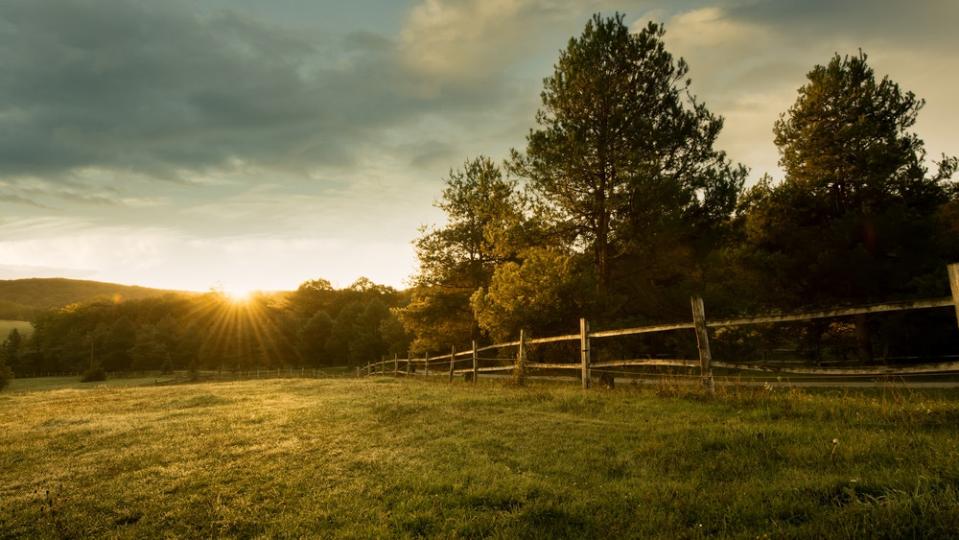Warren Buffett Doesn't Buy Real Estate Properties – But He Couldn't Say No To This Nebraska Farm

Warren Buffett generally buys real estate only in the form of real estate investment trusts (REITs). He sticks to stocks because he thinks they offer a more efficient way to build wealth. Still, when an opportunity presented itself for a 400-acre plot of Nebraska farmland – he couldn't turn it down.
"In 1986, I purchased a 400-acre farm, located 50 miles north of Omaha, from the FDIC. It cost me $280,000. ...)I knew nothing about operating a farm. ... I calculated the normalized return from the farm to then be about 10%. I also thought it was likely that productivity would improve over time and that crop prices would move higher as well. Both expectations proved out," said Buffett in a Berkshire Hathaway annual letter.
Don't Miss:
This Jeff Bezos-backed platform has made real estate investing as easy as ordering stuff on Amazon. Read how you can invest as little as $100 in its offerings.
Elon Musk’s vision and ventures are propelling Austin, Texas, into an extraordinary opportunity for investors. Here's how to invest before he floods it with new tech workers.
To this day, he has barely visited the plot, but it still generates admirable returns each year. This isn't an isolated case. Farmland is a robust asset class, and you don't need to be a billionaire or know how to plow a field to profit from it.
The Basics
Between 1991 and 2023, U.S. farmland yielded an average return of 10.52%, outperforming the S&P 500’s average returns of 10.07% for the same period. Farmland surpassed the returns of real estate, which stood at 7.84%, and gold, which had an average return of 5.67%. The stats look good for farmland, but a strong case could be made that they won't stay the same in the coming years. They could drastically go up because of a number of unstoppable factors.
Cities Are Eating Up Farmland
Urban areas have been expanding at farmland's expense since the dawn of time, but it's getting out of hand. The U.S. has lost 35 million acres of farmland in the last 10 years, and it will almost certainly lose more in the coming decades because of a glaring shortfall of around 3.2 million homes. Most of those homes will be built on today's wheat and corn fields because there's not enough available space in urban areas. That could be good news for farmland in general, as the drop in supply could cause a spike in the price per acre. However, there's a trend that's even more pressing.
World Population – 10 Billion
The global human population reached 8 billion in 2022. By 2050, it's projected to grow to just shy of 10 billion. Those extra billions of humans will cause additional strain on farmlands, which will have to significantly ramp up their productivity. But that's only scratching the surface.
The world at large is getting wealthier. More than a hundred million people will join the middle class this year alone. A standard finding across the globe is that as people are being lifted out of poverty, they start consuming more meat. The only problem is that it takes six pounds of grain to produce one pound of beef, for example. And they will have to come from the remaining croplands.
Inflation Is Generally Good For Farmland
The prices of commodities tend to go up during times of inflation, which makes them a prime target for hedging. If you look closely at those commodities, you'll realize that many grow on fields, such as corn, wheat and cotton. Spikes in their prices mean higher income for farmland owners and investors, which often leads to an increase in farmland itself. On top of that, the value of farmland has historically shown low volatility and its movements generally don't correlate with the stock market, making it resistant to crashes.
Read Next:
Investing in real estate just got a whole lot simpler. This Jeff Bezos-backed startup will allow you to become a landlord in just 10 minutes, and you only need $100.
Collecting passive income from real estate just got a whole lot simpler. A new real estate fund backed by Jeff Bezos gives you instant access to a diversified portfolio of rental properties, and you only need $100 to get started.
"ACTIVE INVESTORS' SECRET WEAPON" Supercharge Your Stock Market Game with the #1 "news & everything else" trading tool: Benzinga Pro - Click here to start Your 14-Day Trial Now!
Get the latest stock analysis from Benzinga?
This article Warren Buffett Doesn't Buy Real Estate Properties – But He Couldn't Say No To This Nebraska Farm originally appeared on Benzinga.com
© 2024 Benzinga.com. Benzinga does not provide investment advice. All rights reserved.
